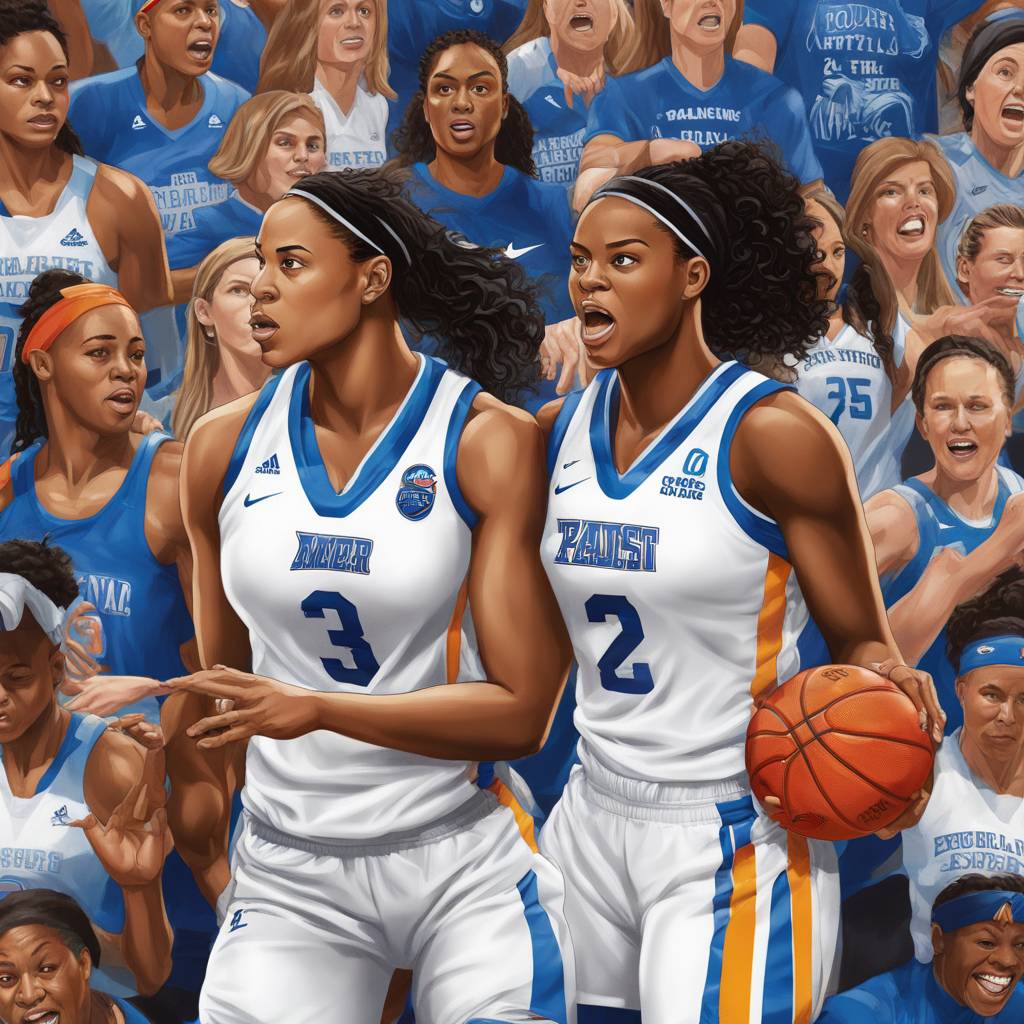Interest in the Women’s NCAA Tournament has never been higher, with attendance records being broken and every game being televised across the ESPN/ABC networks. Brands are also capitalizing on this momentum, with commercial ad costs and revenue reaching new heights. However, despite the positive growth in viewership, fandom, and revenue, women athletes continue to face damaging stereotypes and expectations that hinder their ability to compete without scrutiny.
Prominent figures in women’s college basketball, such as Caitlin Clark, Angel Reese, and Cameron Brink, have been under scrutiny for their aggressive playing styles during the tournament. While men athletes are often praised for being aggressive and assertive, women athletes find themselves caught in a double bind situation where such behaviors are criticized. The intense behaviors displayed by these women athletes have been met with disappointment and backlash, demonstrating the unequal expectations placed on them compared to their male counterparts.
The concept of a double bind occurs when women athletes face conflicting expectations or demands that leave them with no viable option to satisfy both simultaneously. This dilemma results in criticism and scrutiny regardless of their performance, as they are judged harshly for being too assertive or not competitive enough. As a result, women athletes are placed in a challenging position that imposes limitations on their athletic pursuits and leads to frustration.
Role congruity theory suggests that societal expectations dictate that women exhibit qualities traditionally associated with femininity rather than athletic prowess, creating a double bind for women athletes. This situation requires them to navigate a balance between assertiveness and femininity, further complicating their pursuit of success. It is essential to normalize the aggressive behaviors exhibited by women athletes to validate their competitive spirit and challenge harmful gender stereotypes.
Dr. Nefertiti Walker emphasizes that women athletes are competitors who experience big emotions and adrenaline during intense moments, making it unreasonable to expect them to align with outdated gender ideologies during competition. By defending the hyper-competitive behaviors of women athletes, it empowers them to compete authentically and contribute to a more inclusive and progressive sports culture for all. It is important to recognize the evolution of women’s sports away from traditional gender norms towards a more egalitarian place to support the growth and success of female athletes.
The scrutiny faced by women athletes for their aggressive playing styles underscores the need to challenge societal expectations and stereotypes that hinder their ability to compete authentically. By normalizing and defending the competitive behaviors of women athletes, it validates their skills and determination, contributing to a more inclusive and progressive sports culture. Women athletes should not be held to different standards than their male counterparts and should be empowered to compete authentically without fear of being judged for displaying their competitive spirit.













